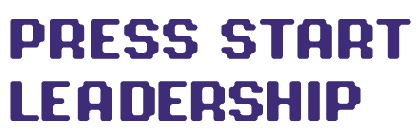Leveraging Game Skills for Real-World Leadership Success
Picture this: The clock’s ticking, your hands are sweating, your heart’s pounding, but you’re exhilarated. You’re one step away from the ultimate boss, your nemesis for the past several levels. You’ve strategized, rallied your team, rebounded from multiple failures, and now, victory is within reach.
Sounds like a typical intense gaming night, right? But what if I told you these adrenaline-filled moments are more than just good fun? What if these experiences, honed in the vibrant pixels and polygons of the gaming universe, could serve as the foundation of your leadership skills in the very industry that created these games?
As a gamer, you’ve been unknowingly preparing for leadership in the game development industry. You’ve learned strategic thinking, teamwork, resilience, and empathy. Now it’s time to transfer these skills from your virtual battlegrounds to the real-world challenges of the video game industry.
Strategic Thinking
Recall the countless times you’ve had to plan your moves in a game. The strategic decisions made in RPGs like “Final Fantasy” or tactical shooters like “Valorant” are the stuff of legends. Each decision, each action you took was an exercise in strategic thinking. Little did you know, you were already playing the role of a leader, carefully charting your course of action, allocating your resources, and making critical decisions that would determine your in-game success or failure.
In the gaming industry, this skill is indispensable. From managing budgets to scheduling project timelines, every task requires strategic planning. You’ll have to make complex decisions, sometimes with incomplete information. Just as in a game of chess, every move you make will impact the rest of the project. Your opponents might be tight deadlines, technology constraints, or budgetary limitations, but with the strategic thinking honed by years of gaming, you’ll be prepared to tackle them all.
Consider developing a new game, for instance. It’s not unlike planning a quest in an RPG. You need to define the goal (the game’s vision), understand your resources (the team’s skills and project budget), anticipate challenges (technical issues, market trends), and plan the best course of action to reach the objective. In this process, you might encounter unforeseen hurdles – a key team member might leave, or new competitors may emerge. But with your strategic thinking, you can plan contingencies, much like preparing backup strategies for an unpredictable game boss.
The Power of Teamwork
Gamers know it well: Teamwork can be the difference between victory and defeat. In team-based games like “Overwatch” or “League of Legends”, your success hinges on the effectiveness of your team. You quickly learn that each team member, with their unique set of skills, is crucial for victory. You learn to coordinate, to make the most of your team’s combined strength, and to cover for each other’s weaknesses.
In the gaming industry, teamwork is just as important, if not more so. A game development project is a massive endeavor. It includes a diverse team of programmers, artists, designers, marketers, and more, each with a unique set of skills and perspectives. Your role as a leader is to foster collaboration among these disparate talents, much like coordinating an Overwatch team to take on an opponent.
Creating a cohesive team requires understanding the strengths and weaknesses of each team member, delegating tasks effectively, and fostering open communication. As a leader, you must create an environment where everyone feels valued and heard. This, combined with a clear common goal, can drive your team towards success. For instance, a programmer might come up with a creative solution for a design problem, or a designer might suggest a more efficient coding practice. By encouraging cross-functional collaboration, you can create a more effective and innovative team.
Building Resilience
How many times have you faced the ‘Game Over’ screen, only to respawn and try again? These moments of perseverance, this grit that kept you going, are manifestations of resilience. You see, every time you fell into a pit in “Super Mario,” every time you were ambushed in “Call of Duty,” you were not only learning the game mechanics, you were building resilience.
In the world of game development, challenges are aplenty. From bug fixing marathons to unexpected project cancellations, you will face multiple hurdles. As a leader, your resilience will guide your team through these rough times. You’ll set an example for your team, showing them that failure is not the end, but just another step in the journey towards success.
Imagine this scenario. You’re leading the development of a new game, but suddenly, a competitor releases a game with a very similar concept. The morale of your team plummets. Here’s where your resilience shines through. You gather your team, acknowledge the challenge, and brainstorm ways to distinguish your game, to turn this setback into an opportunity. Your team rallies, motivated by your unwavering determination, and in the end, you release a game that not only stands apart from your competitor’s, but is also better received by the audience.
Empathy – Understanding Players and Team Members
Gaming is not just about quick reflexes and strategic prowess; it’s also about empathy. In narrative-driven games like “The Last of Us” or “Life is Strange,” you step into the shoes of the characters, understand their struggles, and make decisions from their perspective. This ability to understand and share the feelings of others is empathy, and it’s a vital leadership skill in the gaming industry.
Firstly, empathy helps you understand your players better. By stepping into their shoes, you can create games that resonate with their experiences and preferences, fostering a deeper connection between the player and the game.
Secondly, and equally important, empathy is essential in managing your team. Understanding the challenges your team members face, appreciating their efforts, and providing support in difficult times can significantly improve team morale and productivity.
For instance, a team member might be underperforming due to personal issues. An empathetic leader doesn’t just see the dip in performance; they understand the human behind the work, offering support and flexible solutions that not only help the individual but also prevent a potential drop in overall team morale.
Final Thoughts
The journey from a gamer to a leader in the video game industry might not be as far as you think. The countless hours spent battling bosses, coordinating team attacks, and understanding complex game narratives have unknowingly prepared you for leadership in the gaming industry.
The strategic thinking honed by planning epic game quests, the teamwork fostered in multiplayer arenas, the resilience built from every ‘Game Over’ screen, and the empathy developed from understanding diverse game characters – these are the same skills that will make you an effective leader in the gaming industry.
So the next time you pick up your controller for a gaming session, remember, you’re not just a gamer; you’re a leader-in-the-making. It’s time to level up from being a player in the game to a player in the industry that brings these games to life.
Thank you for reading this article to the end. I hope it has been informative and helpful. If you’d like to learn more about the topics we covered, I invite you to check out my podcast and my YouTube channel where I delve into these subjects in more depth.
Additionally, I would love to stay in touch and keep you updated on all the latest developments and insights in the world of leadership. That’s why I encourage you to sign up for my newsletter. Not only will you receive regular updates, but as a thank you for joining, I will also send you my free eBook, “5 Heroic Leadership Skills.” This eBook is packed with practical tips and strategies that will help you take your leadership skills to the next level.
So don’t wait! Sign up for my newsletter today and start your journey towards becoming a more effective and inspiring leader. I can’t wait to hear from you.


